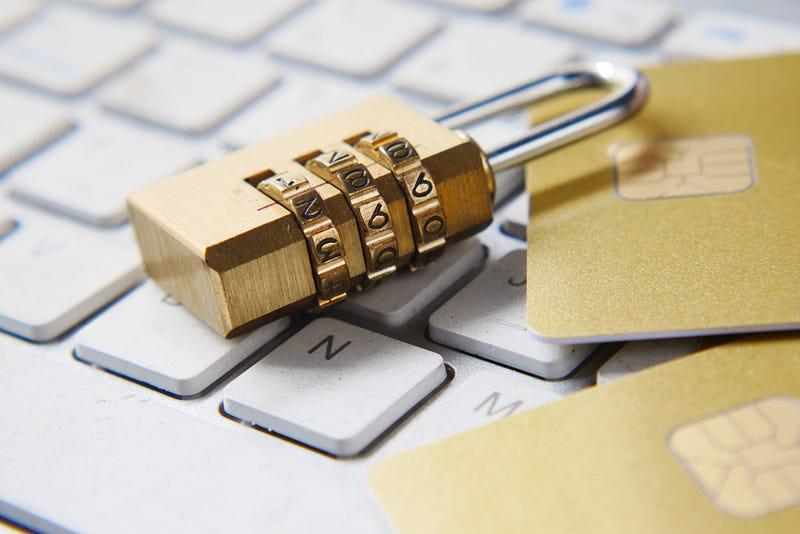How to Safeguard Your Personal Data: 15 Essential Tips
Written on
Introduction to Online Privacy
Have you ever felt exposed in the digital world? Perhaps you've searched for your name online, dealt with unwanted stalkers, or received irritating spam calls and emails. If you have, I can assure you, you’re not alone in feeling uneasy. While there are many well-meaning individuals who won’t misuse your data, it’s crucial to shield yourself from those who might. Personally, I tend to adopt a more extreme stance on privacy, primarily due to my own unfortunate experiences with online violations.
“I have nothing to hide!” — But do you enjoy the thought of someone, anywhere in the world, being able to discover your whereabouts, appearance, birth date, credit card details, or Social Security Number?
“Well, they have my information anyway.” — That depends on the context. Governments, employers, and educational institutions likely do, but why would a site like Spokeo require your Social Security Number?
“Privacy is a lost cause.” — Resist that notion fiercely!
“It’s just too much trouble.” — Only if you allow it to be.
15 Essential Strategies to Protect Yourself Online
Some of these suggestions are straightforward adjustments, while others may require a bit more time. I recommend brewing a comforting cup of coffee or tea, settling in, and delving into each of these strategies — not just this piece, but understanding how attackers exploit personal information.
Switch Your Browser
Google Chrome is not your only option. Despite Google's recent claims about prioritizing privacy, have you examined the fine print or your permissions? If you take a moment to read the terms of service for Chrome, you might feel inclined to make a switch.
Recommendation: Save your bookmarks and consider alternatives like Tor, Brave, DuckDuckGo, or Firefox.
Adjust Your Browser Settings
Each browser, app, and account comes with default settings that often grant permissions for your microphone and camera. When you visit a site, these settings can be shared.
Recommendation: Tighten the security for cookies, location, microphone, camera permissions, passwords, autofill features, cross-site settings, tailored ads, and extensions.
Utilize Multiple Email Accounts
Establish a private email account for trusted contacts and services, while creating additional accounts to handle spam, uncertain services, or subscriptions.
Recommendation: Use different email providers and assign them to specific tasks. For instance, utilize ProtonMail for anonymous communications.
Limit Your Social Media Presence
Social media can be perilous, leading to issues like cyberbullying or stalking. You control the information you share, but others may seek it for malicious purposes.
Recommendation: Be selective about your online connections, deactivate unused accounts, and evaluate the necessity of each platform.
Be Cautious with IoT Devices
In today's world, surveillance is omnipresent, but who can access that data? Some IoT manufacturers may have ulterior motives.
Recommendation: Avoid systems that require cloud backup of your information and opt for local management options.
Use a VPN
Even with location settings disabled, your public IP address reveals your general location. A VPN can mask this information, making it appear as though you're browsing from a different location.
Recommendation: Search for a tutorial to set up OpenVPN on your device.
Consider Encrypted File Storage
While cloud storage offers convenience, it also poses risks, potentially exposing sensitive documents.
Recommendation: When choosing a storage service, ensure that your data is encrypted both during transfer and when stored.
Employ Encrypted Messaging
This complements encrypted file storage, safeguarding your conversations from prying eyes.
Recommendation: Utilize apps like Signal for secure messaging.
Understand Transitive Trust
Many websites allow you to log in using accounts from other platforms, essentially granting them access to your primary account's permissions.
Recommendation: Avoid signing into sites using external accounts. Instead, use a password manager.
Leverage a Password Manager
Since you won’t rely on third-party credentials, a password manager can help you keep track of your passwords securely.
Recommendation: Consider options like Bitwarden, LastPass, or 1Password.

- Enable Two-Factor Authentication
This adds an extra layer of security by requiring two forms of identity verification.
Recommendation: Activate two-factor authentication on your accounts using tools like Duo, Microsoft Authenticator, or Google Authenticator.
- Unsubscribe from Unused Services
Eliminate accounts and emails you no longer use to prevent your information from being sold.
Recommendation: Regularly review and close unused accounts or unsubscribe from unnecessary mailing lists.
- Opt-Out of Data Selling
You might be surprised to find how much of your information is out there without your consent.
Recommendation: Create a spam email account and opt out of data collection on various websites.
- Beware of Spam Calls
Many organizations require your phone number and may sell it to marketers, leading to spam.
Recommendation: Familiarize yourself with resources from the FCC to block unwanted calls.
- Stay Informed and Cautious
Reflect on whom you share your information with and why. This awareness is crucial to protecting yourself.
For further insights on safeguarding your online privacy, check out this article:
Online Privacy and Security
The official website of the Federal Trade Commission, dedicated to protecting consumers for over a century.
consumer.ftc.gov
Overview
If it’s not clear, I am serious about my online privacy while striving to make it as convenient as possible. I want to avoid unnecessary hassle. Tackle these steps gradually; privacy should be a priority, not a burden. Keep in mind that even if you implement these strategies, absolute security is never guaranteed. Cyber attackers are constantly devising new methods to exploit vulnerabilities.
The first video titled "How to Protect Your Privacy Online" offers effective strategies to safeguard your online presence.
The second video, "How We Protect Your Personal Information," explains how organizations can secure your data.